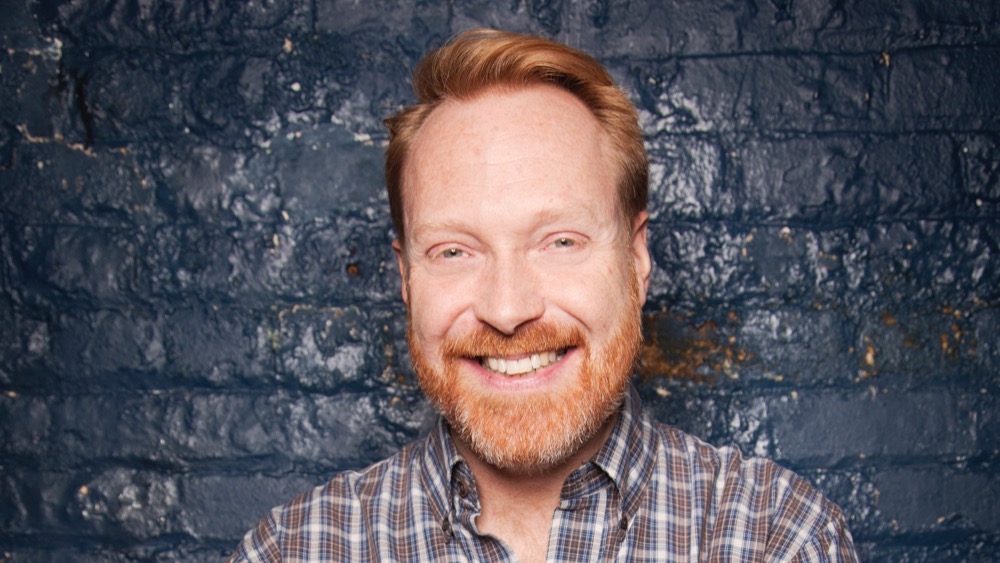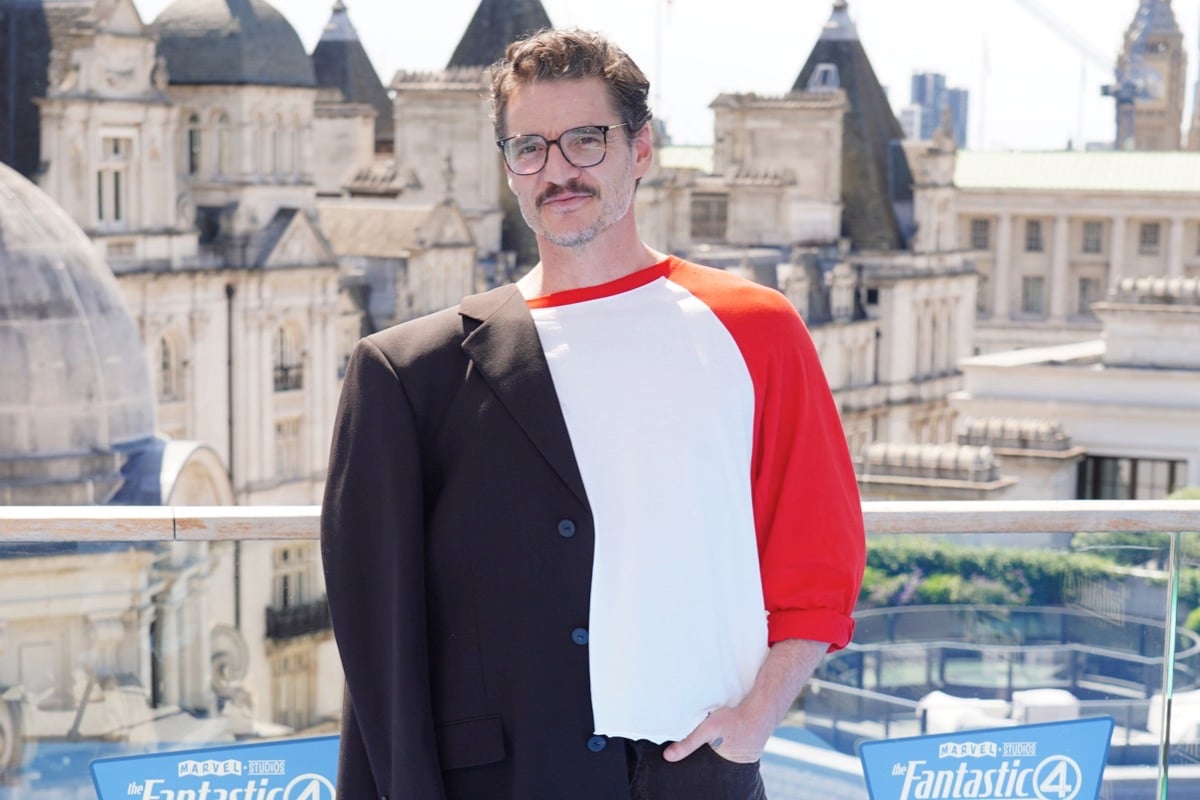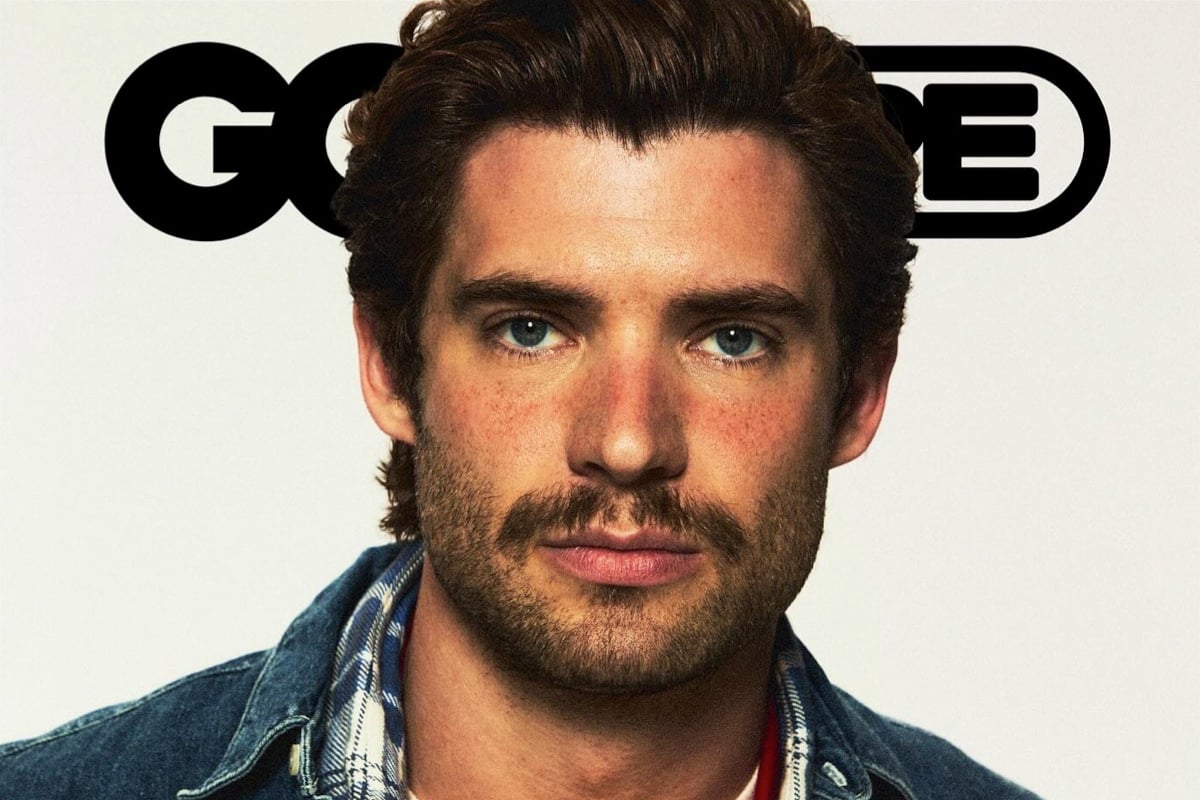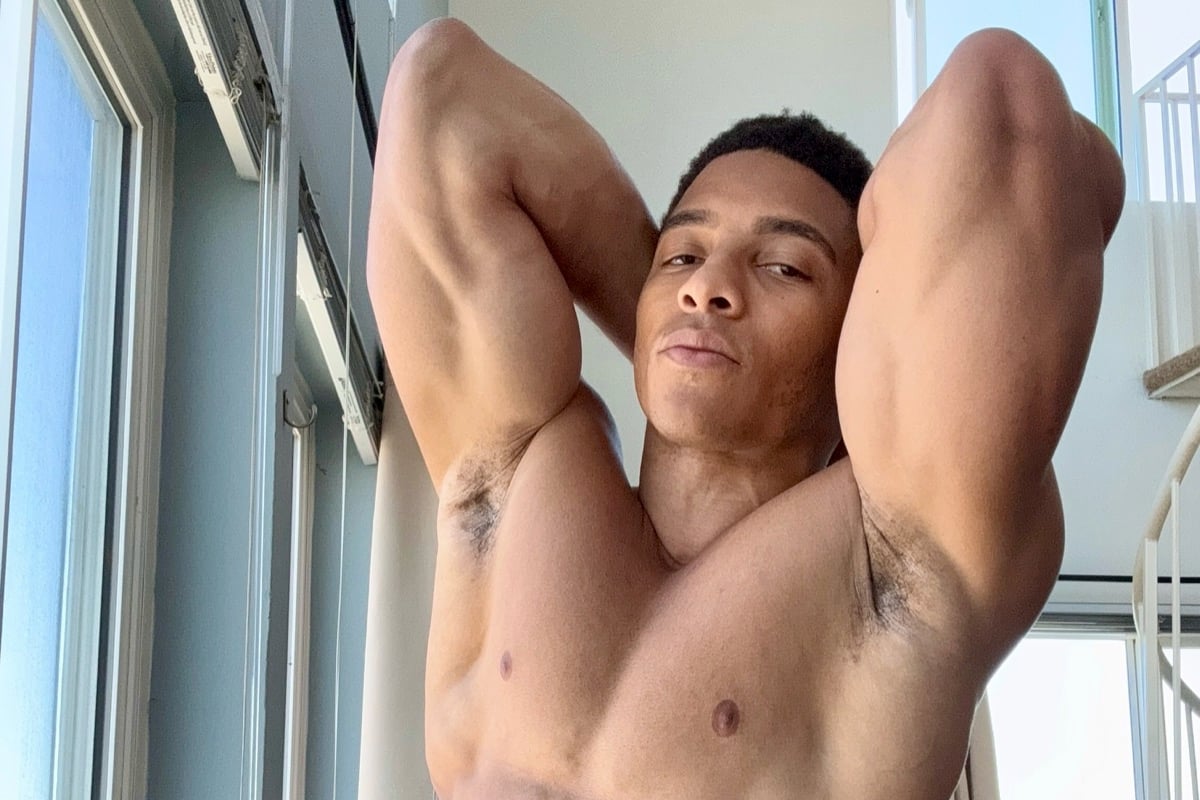Kevin Allison made many of us laugh during his time on MTV’s cult comedy series, The State.
These days, he’s still making us laugh, and cry, and think. Kevin is the host of the amazing storytelling podcast RISK!
On the show, which arose from a series of successful live shows in New York and Los Angeles, people from all walks of life tell true stories “they never thought they’d dare to share.” I had the chance to chat with Kevin about the show’s origins and how he is able to provide listeners with emotional, hilarious and often relatable stories.
Socialite Life: How did you end up going from sketch comedy to storytelling?
Kevin Allison: I was in a sketch comedy group called The State and we had a show on MTV from 1993 to 1995 – and then, in 1996, the group broke up and I was devastated by that breakup. I remember the day we were fired. We quit MTV and tried to go to CBS, and Les Moonves fired us immediately. He had just been hired to take over CBS. He was like, “I don’t have time to think about a bunch of kids making sketch comedy. Just fire them right away even though we just hired them.” And I remember I went back to my apartment that night and laid down on my floor and my body was shaking, because I was so distraught.
And the reason I was so distraught was because I had attained a level of success with that group of people. I was on television, there were all sorts of prospects of how to go up, up, up in the whole Hollywood and TV world and all of a sudden, it was all gone because the group was all of a sudden maybe no longer going to exist. And I really didn’t have the confidence that I could create a career on my own as a solo performer. I was just so insecure about the fact that I’m so unusual. I was so insecure about the fact that I’m SO gay and so kinky and do Midwestern and so, I don’t know, intellectual and sincere – and all sorts of things that I never felt like added up to something that would be really appealing to a Hollywood casting director. I just always thought of myself as being too odd.
So, 12 years after The State broke up, I was trying everything I could think of to forge a solo career. I was doing one-man shows and I was auditioning for commercials and indie movies. I was pitching television shows to Comedy Central, but I was terrified. I was filled with stage fright and I just wasn’t comfortable in my own skin yet. I was very reliant on playing old crazy, kooky characters, like I had been with the sketch comedy group. I did that for 12 years, and was getting nowhere. I was a starving artist. I mean, in order to live, most of what I was doing was cater waitering – and getting recognized left and right by people because I was still on TV in reruns.
SL: Where did the idea for RISK! come from?
Kevin Allison: It was in 2009 that I did a solo show of crazy, kooky characters, called F-Up, about five characters who f-ed up their careers. For example, there was one character who was a Jewish vaudevillian and actor from the 20s who used to be in a comedy group, but his partners went off to LA to become multimillionaires and left him behind. So, clearly, there was some autobiography in that. I did this solo show at San Francisco Sketchfest in 2009 and (fellow State alum) Michael Ian Black came to see it. And afterwards, I asked him, “What did you think?”, because I thought the show was a failure that night. And he said, “I think the audience just wanted you to drop the act and stop playing these characters, stop hiding behind a mask and start getting upon stage and just be you. Tell your own stories. Your life is amazingly interesting.” And I said, “Oh, I’m so terrified to hear that because I’m just afraid I’m too gay and too kinky and too Midwestern” and all these things. I said, “It feels too risky.” And he said, “THAT is the word to latch onto. Like, if what you’re doing feels risky, then it probably means you’re opening up to the audience and they’ll open up to you.”
So, I went back to New York after that experience and on the flight home, I thought, “I’m going to tell the riskiest story I can imagine telling in front of an audience as soon as I’m back in New York.” And the riskiest story I could think of at the time was about the first time I prostituted myself, when I was 23-years-old. I went up on stage at the UCB Theater in Chelsea and I told this story and I was stunned – because there was such a difference in the feeling between myself and the audience. I was looking right into their eyes, which I was very un-used to doing when being on stage. When you’re playing a character, you’re kind of reciting memorized stuff. But now I felt like I was having a conversation with them – and there was just this energy coming back at me where every time I thought, “Oh, that sounded too gay or too Midwestern, or whatever it might be, I realized, “Oh, no, they continue to lean forward and this is really resonating with them.”
So, I left the theater that night and I walked away, down 8th Avenue and the whole idea of RISK! occurred to me at that moment, during that walk. I thought, “I’m going to create a show. It has to be a live show because I had to force my frightened little ass to get up on stage on a regular basis. I’ve been avoiding that my whole life, I’ve got to start doing that regularly in order to get comfortable in front of an audience. And, it should be a podcast – which I was just learning about at the time – because small room comedy isn’t going to get you anywhere; you need a larger audience.”
SL: How did you decide the format of the podcast?
Kevin Allison: I thought it should be live stories, stories told on stage and radio-style stories, because I’ve always loved putting together an audio story sort of thing. I used to play with a Radio Shack tape recorder when I was a kid all of the time. So, it all came together for me and I realized that the deal with the show is everyone is coming out of the closet about something. Everyone is stepping outside of their comfort zone and speaking to the audience in a way they never really thought they’d be totally comfortable talking in mixed company about – about the things that have happened in their life that have made them feel the most emotional – or just the most revealing – the kinds of things they would normally talk about with their therapist.
And, amazingly, that idea immediately resonated with everyone I asked to do the show. People were like, “That’s a great idea.” Because it can be like The Moth or This American Life but it can also go places where those shows can’t go because they’re on NPR. I remember I started listening to those shows at that same time and I was so struck by Ira Glass saying before one of the stories on the show, “I have to warn the audience. This next story acknowledges the existence of sex.” And I was like, “Oh, there is definitely room for a storytelling show that is not afraid to go way deep into that sort of stuff without making apologies.”
SL: The interstitial music on RISK! is amazing. How are you able to find songs that connect so well with the stories?
Kevin Allison: You know, it’s so funny, because with the podcast, I have found that it has perfectly blended so many of these tiny little ways of being creative that go all the way back to when I was a kid. When I was a kid, my first obsession was with records. I loved listening to records. My parents, my brothers, my sisters – everyone in my family had big record collections. And, also, I was never much into listening to an album. I was always focusing on specific single tracks. I used to make mixtapes when I was a kid – like a maniac – and I always had very eclectic tastes too. And there really is something incredibly…I don’t know…it really does scratch a creative itch to make a good mixtape, where one song leads into the next in a really dynamic way and you feel like you’re getting a really wonderful mix of different colors and tones.
So, yes, I have always been obsessed with finding new music, especially new singles or just specific songs and when I started creating RISK!… those first two seasons are especially weird. Because back then we were in the “wild, wild west” of the internet and we didn’t know what we had the rights to use or not so we were using either stuff that was on free music archives online or we were using stuff where we wrote to the band and got their permission or we were using stuff where the band just literally made the song for the show. So, those first two years of the show are really weird with the mix of what you’re hearing.
But, eventually, we were able to afford to buy licenses. Now, we can play literally almost any song that’s out there because we have like three different music licenses to play whatever. So, the internet has figured out how to handle all of that with podcasts and now there’s a lot of freedom but I can’t believe how much searching it still takes. I still constantly as people if they can recommend new bands for me to listen to. I’ll just flat-out ask the fans on our Facebook page, send me some songs I should check out. I’ll use stuff like Spotify or Pandora, like little algorithms to help me discover new stuff, like “this song might sound a little bit like that song.”
I’m constantly searching for music, and it’s not very time effective. I think an unusual amount of time goes into deciding the songs that end up on the show but I’m very proud of it and I think our Best of RISK! Music episodes – every five or so months, we’ll do an episode that’s just the best songs we’ve had on the show in the past few months. I think that those are spectacular. I think those are so wonderful to listen to at parties and stuff like that.
SL: Is there a story that was told on the podcast that still resonates with you to this day?
Kevin Allison: Well, I have always been spectacularly fascinated with a story Mollena Williams shared on the show I don’t know how many years ago. The story is called “Slave”. It’s a radio-style story and what was fascinating about it was I knew the broad strokes of what happened in this incident she lived through, but I didn’t really know the whole story. And she came over to my apartment and she just kind of improvised it, just very conversational, just chatting with me. But it really comes off like it’s extremely well thought out and almost like a written short story or something like that – which is very rare, I mean, usually on our end we have to edit and edit and edit to make a person sound a lot more eloquent than they actually were when we first recorded them.
But I think what was so fascinating about the story was…like, I’m a kinky person, so I’m always fascinated with people exploring things sexually or erotically that are unusual or maybe even a little taboo or a little dangerous. [Mollena] is a black woman and she was raised in the projects in Harlem and she grew up as a feminist, like very, very conscious and woke about race and power dynamics and all of that, but she had this kink, like ever since she was a little girl, of wanting to play a submissive, sort of slave-like role with someone. So, as she got into the kink community, in her 20s or so in San Francisco, she started to wonder if she could play what they now call “race play”, where you take racial tension and you make that the central focus of the behavioral roleplay between a dominant and a submissive person in an erotic situation.
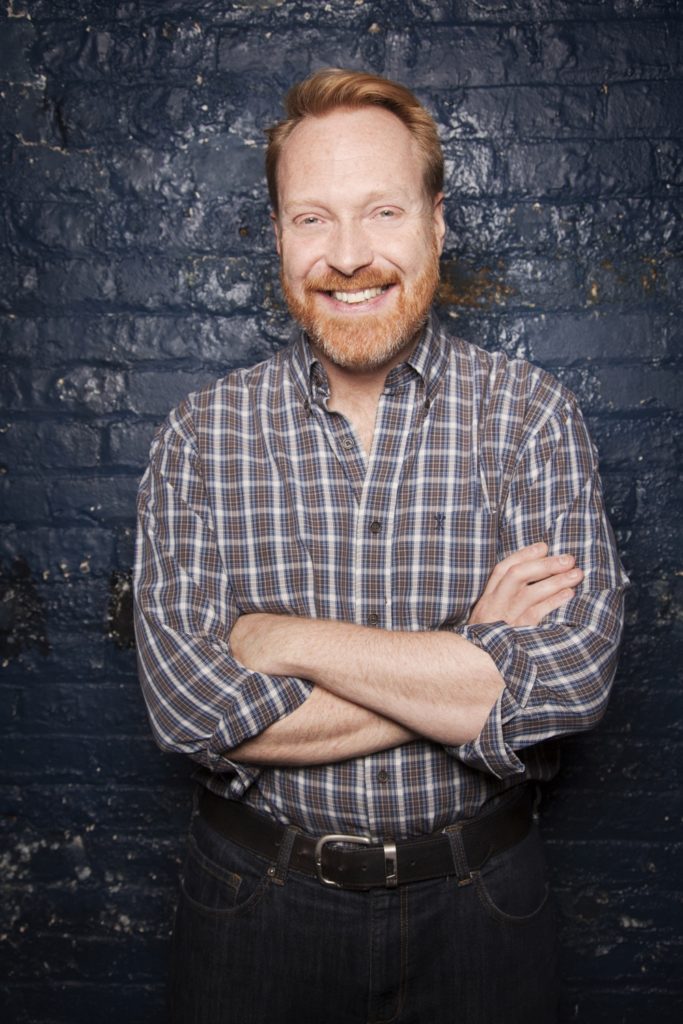
So, she started experimenting with that and, at first, she had a really fun time with it, you know, she had people who were very tongue-in-cheek and she had a lot of trust with them and all of that. But then she tried it with a guy who was very, very intense and she didn’t know him quite as well, and they didn’t negotiate it quite well enough. There was some confusion about the negotiation of how they were going to play and she found herself in this roleplay scene with him that was almost like 12 Years a Slave, where she’s like the escaped slave girl sort of thing and he’s the redneck cracker with a bull whip and the whole nine yards and something happened to her psychologically while she was playing where she lost grasp of reality. She started to be unable to remember that she had a safe word and this was just a game, and it started to become a truly traumatic situation for her.
The reason I find that story so fascinating is because I think it really is risky of Mollena to be sharing that. People have a wide range of reactions to it but what I love about it is that she’s able to acknowledge and honor her mixed feelings. At the end of the story, she says, “If you’re thinking of doing something like this, any sort of taboo play in the kink realm, you really have to think through it first, like what you can handle, because you might just uncover something psychologically that might be a lot bigger, an emotion that you had planned on dealing with, and it can be pretty dangerous.” It did traumatize her for a while. But she ends it by saying it can also be very, very hot and that’s what I love about stories is that stories don’t have to be black or white, or this way or that way, they can honor those mixed emotions and to hear someone really unpack all of that in depth is really quite impressive. I love that about what we do with the show.
SL: Do you think everyone has a RISK!-worthy story inside of them?
Kevin Allison: I think everyone has lots of stories in them. What I always tell people is what we’re interested in is those moments from your life when you were most either emotionally wound up or fascinated or you really felt like you were learning something about yourself, like we have these peak experiences, often times it will be your first time doing something, like the night you lost your virginity, and then other times it will be like terrible or wonderful surprises, like a car accident you were in, or you tried mushrooms for the first time and it was like a magical experience.
We have these peak experiences in our life and it’s very much worth sitting down and going back and trying to recreate it, because once you start walking through some of those memories and trying to make sense of it all, you’ll have more memories that start creeping in. And you might think, “Oh, I don’t remember all that much about that” or “Oh, it wasn’t that big of a deal, the whole thing took place in only about ten minutes.” But once you start trying to remember and really re-experience it as you’re talking about it, other memories start filtering in and you really begin to have more of a grasp on the entire experience. That’s why people do therapy, by the way. It’s trying to walk through some of these experiences and revisit them and kind of like make something new out of them. So that’s what storytelling is – you’re sharing with someone about a moment that was particularly resonant for you and your hope is that, in sharing that, it will resonate somehow with the listener as well.
SL: How long does it take to get someone ready to tell their story on stage or on the podcast?
Kevin Alison: Well, New York and Los Angeles are our shows where we’re working a lot with people who are pretty experienced with getting up on stage. So, with those people, it’s like pulling teeth just getting them to agree to work with you because they’re all so full of themselves that they’re like, “No, I don’t have to work with you before the show.”
But, when we go, for example, we’re about to go to Cincinnati and Cleveland next month, and what we’ll do is say on the podcast, “Hey, Cincinnati, we’re coming to town, so pitch us your stories.” So, about 20 people from Cincinnati pitch us their stories. They send in like 300-word long descriptions of what they have in mind and then the ones that sound really interesting to us, we’ll say, “Can you make a 15-minute recording of you attempting to tell that story for the first time?” Just a first draft. Then, after we listen to those, then we actually cast the show, and we’ll usually have them go through two more drafts before the show.
SL: That’s quite a lot of work.
Kevin Allison: It is rather an involved process, and part of the reason it’s so involved is because we want to make sure that everyone getting up on stage is happy with what they’re doing. We want to make sure people have really processed all their emotions and are really ready to do this and we also want to make sure that we’ve done enough poking and prodding at these people to make sure that they really are uncovering all, lifting up all of the rocks to see all the stuff in their stories they might not have thought of in a long time. I have to laugh, because so often when I’m working with someone on a story, I do sound like a therapist because I’ll ask questions like, “Yeah, but what do you think your mother was really thinking at that moment?” or “Oh, is there anything you wanted to say at that moment but you held your tongue?” You know, I ask those kinds of things which kind of get people thinking, “Oh my gosh, yeah, there was something I wanted to say that I didn’t say” and then, all of a sudden, there’s a lot more to unpack there.
SL: What is your advice for aspiring storytellers?
Kevin Allison: My first bit of advice is to listen to “What every RISK! storyteller should know.” It’s about an hour long and it’s me giving tips on what really makes a story pop. And what it is, other than what I was talking about before, about how important it is to zero in on just a few incidents that are particularly meaningful for you, is that you really want to flesh those incidents out, you want to be like, “Okay, that night that I did lose my virginity, what do I remember about the look in her eyes and can I recall what temperature was the room and what were those clothes I was wearing? And what was that feeling I got in my gut at that one point?” You need to really get into the sense memory of what that experience was like in the nitty gritty, so that you can really take us there in a cinematic way to re-experience very specific moments.
A lot of people have this bad habit of telling us the gist of what someone said. They’ll be like, “My Dad said I had to get out of the house as soon as possible because he really wanted me out of there.” Instead, you should say, “My Dad turned to me and pointed his finger in my face and he said, ‘Now you look here, buddy. I want you out of here’”…so you really hear him saying the dialogue. It’s really about zeroing in on those really specific moments of lived experience and then remembering all the sights and sounds and smells and tastes and details like that where you can really kind of cinematically bring it to life for us, so we feel like we’re there watching it happen.
SL: What is the coolest reaction you’ve gotten from a fan of the podcast?
Kevin Allison: Oh my God, there have been so, so, so many. You know it was really cute, we were in Austin a few years ago and this couple came up to me and they said they had been married for 15 years and they were determined to get divorced, like they had been talking…not in heated emotion, but in like “It looks like this is over. We really should get divorced.” So, they had been talking about that for a while and had not been looking forward to the divorce process but knew that it had to happen. Then they started listening to RISK! and they started hearing these kinky stories on the show, because there’s a lot of them on the show. And, in the process, they both realized that – each of them realized separately, “Oh my God, we’re kinky!” Like they had never done a lot of this stuff. But hearing people talk about it, they were like “Oh my God, we could be doing this!” So, they started trying kinky things together and they said to me after this Austin show, they came up to me and said, “We have sex every night now and the divorce is off the table.” (Laughs)
But a lot of people have come up and said they were suicidal at one point, or just going through a really rough patch. Occasionally it’s a little shocking to hear someone say that they started listening when they were 12-years-old. (Laughs) They’ll be like, “Oh my God, you raised me!” (Laughs) But pretty much every day we’ll get these emails from people with these amazing experiences. It is really funny and endearing to hear the great effect it has on people.
SL: However, not all of the feedback you get is positive, right?
Kevin Allison: Of course, we get a lot of complaints about offending people. You know, we get a lot of email saying “Shame on you for having played this”. We’re always walking a tightrope because things that are politically incorrect or inexpertly or insensitively worded are kind of bound to pop up on the show here and there because we encourage people to speak so “uncensoredly”, you know, we don’t want people walking on eggshells, we want people being as unfiltered as they can be. So, occasionally, there are little brouhahas that pop up about that too because we do really want to be as compassionate as we can, as emotionally intelligent as we can about creating a show that is valuable to people rather than hurtful to people. So, we have to navigate that a lot as well.
SL: You recently published the RISK! book, as well as a series of stories for Amazon, called This Can’t Be Happening, and with this and the ongoing live shows, what else do you want to accomplish with the show?
Kevin Allison: Well, we would love to do another book. We would love to do more of the Amazon stuff and we’re starting to talk about film and TV. I can’t really speak specifically about all of that, but this year, at the very least, we’re entering into a lot of talks about that kind of stuff.
I’ve always been apprehensive of taking on too much, because, I once had a lunch with Marc Maron. Marc was on the very first episode of RISK! in New York and then he was at the very first night that we ever did the show in Los Angeles. He’s always been a kind of friend of the show in a little bit of a mentoring sort of way. He said, “Whatever you do, if you do a book or you do TV stuff or whatever projects you might do, just make sure you keep the podcast – the audio podcast – going and keep it at the high quality that it always has been.”
So that, I think, is the challenge looking forward because I do want to be tackling more. There’s a part of me creatively which just wants to be trying new things but at the same time, this show is very hard to produce. (Laughs) So, I want to make sure that we do it very mindfully.
New episodes of RISK! air every Tuesday and can be found wherever you listen to podcasts. On Thursday, Kevin goes into the archives for RISK! Singles. You can follow the show on Twitter, and you can gain access to exclusive content and the full archive of shows by supporting RISK! on Patreon.
Join the SL Community
Have an opinion on what you just read? Sign up to be a part of the Socialite Life community in order to post a comment, bookmark your favorite articles, topics, and contributors.

